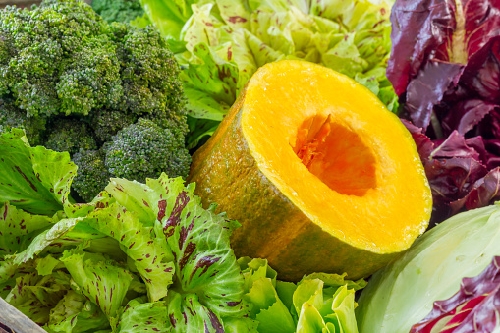 A healthy lifestyle generally includes the transition from processed foods to whole foods, like fresh fruits and vegetables. It can be quite the change for many people. It also doesn’t help that the general public assumption is that eating healthy is too expensive.
A healthy lifestyle generally includes the transition from processed foods to whole foods, like fresh fruits and vegetables. It can be quite the change for many people. It also doesn’t help that the general public assumption is that eating healthy is too expensive.
Contrary to that belief, according to a new study published in the Journal of Hunger & Environmental Nutrition, researchers from The Miriam Hospital and The Rhode Island Community Food Bank found that a diet high in fruits and vegetables is indeed affordable after all.
The research team found that a plant-based diet with extra virgin olive oil is cheaper than economical “healthy eating” recommendations from the United States Department of Agriculture (USDA). The plant-based diet with extra virgin olive oil garnered savings of about $750 per person, annually, when compared to the USDA diet.
Mary Flynn, the study’s lead researcher, is a research dietitian at Miriam Hospital. In 1999, she developed a plant-based olive oil diet for weight loss and to help improve chronic disease biomarkers. Studies found that the diet had improved weight loss and chronic disease factors when compared to a low-fat diet.
In an earlier study, Flynn and her research team at The Miriam Hospital and the Rhode Island Community Food Bank developed a six-week cooking program to improve the abilities of food pantry clients to afford healthy food, by using recipes from a plant-based extra virgin olive oil diet. The researchers wanted to determine whether the food pantry clients would use the recipes for three weekly dinners and also if the clients’ food costs would decrease. Researchers discovered that the clients used the recipes in 2.8 times per week; it decreased their body mass index, ability to afford healthy food, and total groceries expenditures. Also, 76% of the clients had said the recipes took less time and were easy to prepare.
For the current study, the seven-day cost of the plant-based olive oil diet was compared with the lowest cost efficient version from USDA’s MyPlate program, which contains fruits, vegetable, and whole grains. The researchers found that fruits and vegetables in a diet were inexpensive, even when consumed at high amounts.
The team also found meat was expensive and considered not as healthy. High meat consumption is linked with an increased risk of prostate cancer, colon cancer, breast cancer, heart disease, type 2 diabetes, and obesity.
“People should rethink how much meat they consume and how often,” explained Flynn.
Besides fruit and vegetables, other facets of a healthy diet may include grains like brown rice and quinoa, lean animal protein, nuts and seeds, and healthy oils like avocado, extra virgin olive oil, coconut oil, flax oil, and ghee.
“Our goal is to provide those we serve with the most nutritious food possible and help them prepare healthy meals, understanding that the household budget is limited,” added study researcher and CEO of Rhode Island Community Food Bank, Andrew Schiff. “Our findings with this study run counter to the general belief that a health diet must be expensive. This is really good news for individuals served by the Food Bank—showing that wholesome eating on a tight budget is possible for everyone.”
In another study published in BMJ (British Medical Journal) Open in 2013, Harvard School of Public Health researchers found that the healthiest diets cost approximately $1.50 more per day than typical unhealthy diets.
Sources for Today’s Article:
Flynn, M.M., et al., “Economical Healthy Diets (2012): Including Lean Animal Protein Costs More Than Using Extra Virgin Olive Oil,” Journal of Hunger & Environmental Nutrition, 2015; 10(4): 467, doi: 10.1080/19320248.2015.1045675.
“Community food banks study dispels belief healthy diets are costly,” ScienceDaily web site, January 5, 2016; http://www.sciencedaily.com/releases/2016/01/160105101744.htm.
Rao, M., et al., “Do Healthier Foods and Diet Patterns Cost More Than Less Healthy Options? A Systematic Review and Meta-Analysis,” MBJ Open, December 2013.
